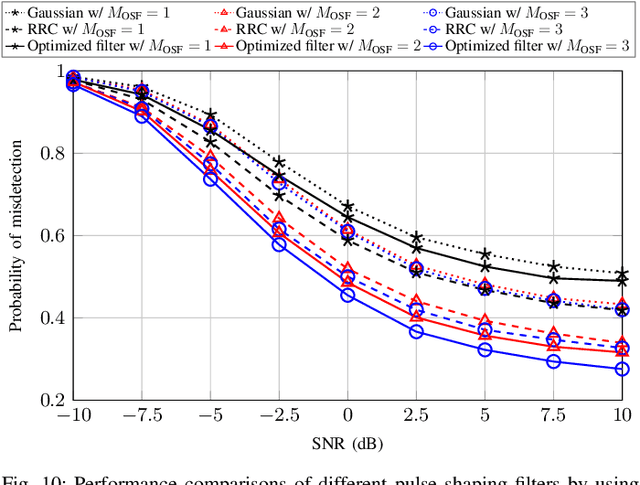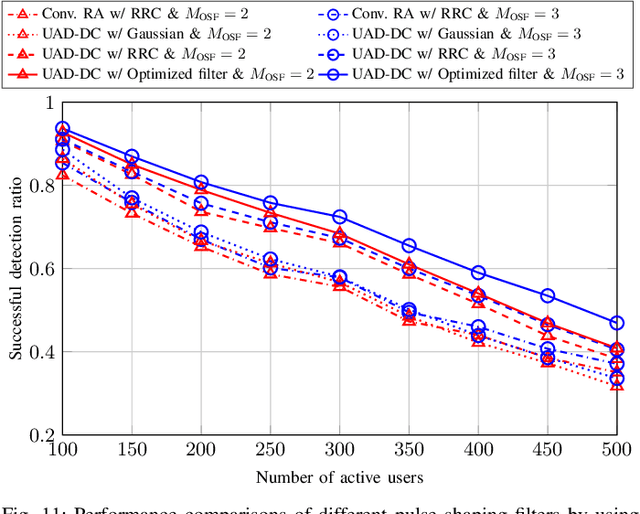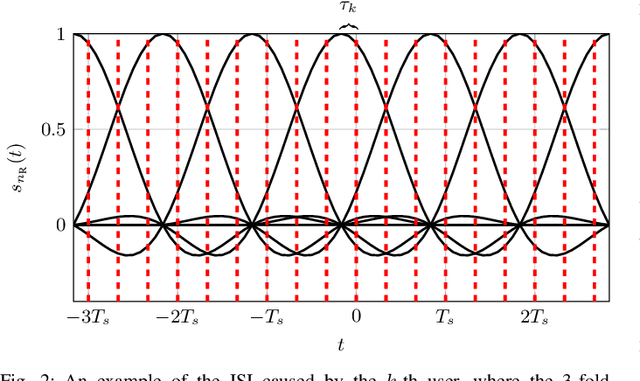User Activity Detection with Delay-Calibration for Asynchronous Massive Random Access
Paper and Code
Nov 04, 2024



This work considers an uplink asynchronous massive random access scenario in which a large number of users asynchronously access a base station equipped with multiple receive antennas. The objective is to alleviate the problem of massive collision due to the limited number of orthogonal preambles of an access scheme in which user activity detection is performed. We propose a user activity detection with delay-calibration (UAD-DC) algorithm and investigate the benefits of oversampling for the estimation of continuous time delays at the receiver. The proposed algorithm iteratively estimates time delays and detects active users by noting that the collided users can be identified through accurate estimation of time delays. Due to the sporadic user activity patterns, the user activity detection problem can be formulated as a compressive sensing (CS) problem, which can be solved by a modified Turbo-CS algorithm under the consideration of correlated noise samples resulting from oversampling. A sliding-window technique is applied in the proposed algorithm to reduce the overall computational complexity. Moreover, we propose a new design of the pulse shaping filter by minimizing the Bayesian Cram\'er-Rao bound of the detection problem under the constraint of limited spectral bandwidth. Numerical results demonstrate the efficacy of the proposed algorithm in terms of the normalized mean squared error of the estimated channel, the probability of misdetection and the successful detection ratio.
 Add to Chrome
Add to Chrome Add to Firefox
Add to Firefox Add to Edge
Add to Edge